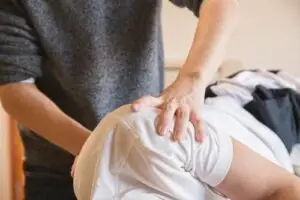Warm days bring joy for most people, but for seniors in long-term care facilities, summer can be dangerous. As temperatures rise, many older adults face a higher risk of dehydration, neglect, and heat-related illness.
Nursing home abuse in Illinois becomes especially concerning during this season when facility staff fail to deliver proper care and attention. Families must stay alert to keep their loved ones safe from harm.
Illinois is home to about 1,200 licensed nursing homes and thousands of assisted-living and in-home care facilities. While most offer compassionate care, abuse and neglect still occur far too often, sometimes hidden behind polite smiles and clean halls. Recognizing early signs of mistreatment can make all the difference during the summer months.
Understanding the Realities of Nursing Home Abuse in Illinois
The elderly are especially vulnerable when temperatures soar. Even a few hours in an overheated room can cause confusion, dizziness, or severe dehydration. Many residents rely entirely on caregivers to monitor their health and offer water, shade, and appropriate clothing. When that trust is broken, the results can be devastating.
Families visiting loved ones should pay attention to how staff interact with residents and how facilities respond to heat. If a room feels too warm, an air conditioner sits broken, or staff appear inattentive, it could signal more serious neglect. Abuse can also appear as indifference, neglect, or failure to act when help is needed.
Heat-Related Nursing Home Abuse
The summer months in Chicago can be extremely hot. A building can become very warm, including nursing homes, personal residences, and assisted-living facilities. If staff members and caregivers are not extremely careful, patients can become dehydrated. They can also suffer heat-related illnesses.
Examples of negligence and abuse in nursing homes during the hot summer months:
- Placing residents outside for long periods.
- Permitting residents to develop sunburn (which can also occur indoors near windows).
- Allowing residents to go outside without sunscreen and adequate shade.
- Dressing residents in heavy clothing that is not suitable for the temperatures.
- Failing to provide extra water and other fluids during periods of high heat.
- Keeping temperatures in the residents’ rooms higher than necessary to reduce utility costs.
- Failing to monitor residents closely to ensure they are eating, drinking, and urinating.
- Failing to report problems with the air conditioning or ventilation immediately. Putting off repairs of air conditioning units or ventilation.
- Failure to provide adequate fans when necessary.
- No reporting signs or symptoms of dehydration or heat-related illnesses to the resident’s doctor immediately.
- Failing to call 911 or seek immediate medical attention when a patient exhibits signs of severe illness related to heat or the sun.
Suppose the nursing home, assisted living facility, or any other party is negligent. In that case, a patient or resident can suffer traumatic injuries and death because of heat-related illnesses and dehydration.
Signs of Dehydration or Heat-Related Illnesses in the Elderly
According to the CDC, elderly individuals are more susceptible to health-related problems. Some of the reasons why older adults may be more prone to heat-related conditions include:
- They do not adjust as well to sudden temperature changes.
- They may have a chronic medical condition that impacts how their bodies react to heat; and,
- They may take medications that can affect the body’s ability to regulate sweat or temperature.
In addition, elderly individuals may not be able to verbalize when they are feeling hot or ill because of incapacitation. Other elderly individuals are unable to move themselves to a cooler location, take a cool bath, or perform other measures that can help reduce the risk of heat-related illnesses.
The signs and symptoms of dehydration include:
- Thirst
- Fatigue
- Dry skin
- Dizziness
- Less-frequent urination
- Confusion
- Light-headedness
- Increased breathing and heart rate
- Dry mouth
Many symptoms of dehydration are similar to those experienced by elderly individuals from other conditions. Caregivers must monitor fluid intake and urine output to help make sure the person stays hydrated.
The signs and symptoms of heat-related illnesses vary depending on the type of illness. The CDC has a chart that lists what to look for and what to do for heat rash, sunburn, heat strokes, heat cramps, and heat exhaustion. Family members should review the signs of heat-related illnesses and look for these signs each time they visit their loved one.
Reporting Nursing Home Abuse in Illinois
If you suspect nursing home abuse, you can call 911 to report the abuse if the person is in imminent danger. You can also report abuse to the Illinois Department of Human Resources. Important telephone numbers on its website include:
- Report abuse of persons with mental illness or developmental disability – 1-800-368-1463
- Elder abuse (not in a nursing home) – 1-866-800-1409
- Abuse in hospitals or nursing homes – 1-800-252-4343
Other information about reporting nursing home or elder abuse can be found on the website.
Standing Beside Illinois Families in Their Fight for Justice
At Costa Ivone, our team has handled many cases involving nursing home abuse in Illinois and other serious injuries. We fight for families who need answers and accountability from negligent facilities.
As a dedicated personal injury lawyer firm, we represent victims of abuse, neglect, and wrongful death throughout Chicago and across Illinois. We also assist employees injured on the job through our workers’ compensation lawyer services. Every client we represent deserves respect, compassion, and a legal team that never gives up.
No family should have to face nursing home abuse alone. If your loved one suffered neglect or injury in a care facility, we can help. Our attorneys will review your case, explain your options, and take decisive steps to hold the responsible parties accountable.
Reach out today by calling (708) 400-0000 to schedule your free consultation. Together, we can protect your family’s future and bring dignity back to those who deserve it most.



